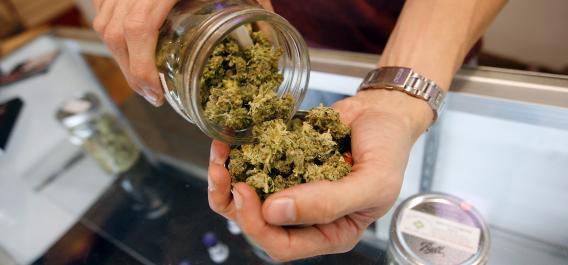Democratic-leaning Public Policy Polling has some new numbers that pot advocates are going to want to see: 58 percent of respondents said that marijuana should be made legal under federal law, compared 39 percent who said that it should not.
According to the Marijuana Policy Project, which we trust has a good handle on things, that level of support for legalization is at an all-time high:
The poll of 1,325 voters asked the same question that has been used by Gallup since 1970 to measure support for marijuana legalization in the country. In October 2011 Gallup found, for the first time, a majority (50%) of Americans supported making marijuana legal. Election results and pre-election polls in Colorado suggest PPP’s automated telephone survey might be a more accurate gauge of support for marijuana legalization, perhaps due to a hesitancy of voters to express their pro-marijuana sentiments to live operators, such as those utilized by Gallup.
The level of support found by PPP also easily trumps that found by CBS News last month. That survey showed an even, 47-47 split on the topic.
PPP pollsters, however, did find a more balanced breakdown on the issue if they looked only at those respondents who said they “felt strongly” about the issue. In that case, 33 percent of people said pot should be legal compared to 34 percent who said it should not be. Those who were less passionate about the topic—those who said they “didn’t feel strongly”—were much more likely to side with pot advocates, 25 percent to 5.
You can check out the full numbers here. A couple other highlights: Men were more likely to back legalization that women, 62 percent to 54 percent; and 50 percent of respondents said they expect pot to be legal under federal law within the next decade compared to 37 percent who thought otherwise.
